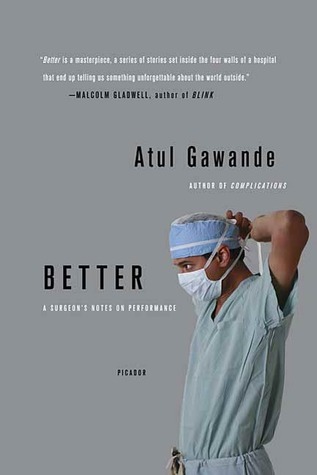More on this book
Community
Kindle Notes & Highlights
by
Atul Gawande
Read between
December 17, 2021 - September 14, 2022
Trust no one” is the mantra we all learn to live by in surgical training.)
the social dimension turns out to be as essential as the scientific—matters of how casual you should be, how formal, how reticent, how forthright. Also: how apologetic, how self-confident, how money-minded. In this work against sickness, we begin not with genetic or cellular interactions, but with human ones.
“It used to be ‘Two hip replacements today—yay!’” he recalled. “Then it became ‘Two hip replacements today—ugh.’”
doctors need to understand that we are businessmen—nothing less, nothing more—and the sooner we accept this the better.
The reason has to be that doctors remain at least partly motivated by the hope of doing meaningful and respected work for people and society.
the hardest part of being a doctor, I have found, is to know what you have power over and what you don’t.
We have at our disposal today the remarkable abilities of modern medicine. Learning to use them is difficult enough. But understanding their limits is the most difficult task of all.
The seemingly easiest and most sensible rule for a doctor to follow is: Always Fight. Always look for what more you could do. I am sympathetic to this rule. It gives us our best chance of avoiding the worst error of all—giving up on someone we could have helped.


